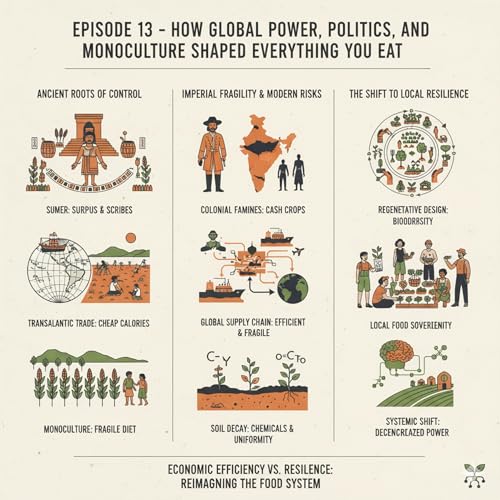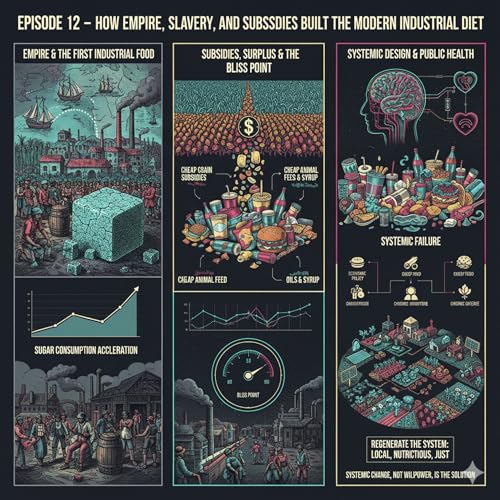This episode traces the hidden history of the modern industrial diet, arguing that the over-consumption of salt, sugar, and fat is not a natural craving, but a direct, lasting consequence of centuries of imperial and corporate policies. The foundations of this diet were cemented by the Atlantic slave trade and the rise of the sugar-and-slave plantation complex, which turned sugar from a luxury spice into a cheap, mass-produced commodity. This cheap access to high-calorie energy fueled the industrial revolution, with sugar being the first true industrial food and its consumption dramatically accelerating in the 19th century. Concurrently, the need for cheap, non-perishable food to sustain a displaced, unrooted urban and industrial working class led to the mass production and use of salt as a potent preservative, establishing the second pillar of the industrial diet.
The third pillar, fat, was added later, driven by post-WWII US farm subsidies that artificially cheapened staple crops like corn and soy. These subsidies created a massive surplus of cheap grain, which was then efficiently converted into cheap animal feed and, through industrial processes, into cheap oils, fats, and high-fructose corn syrup. This policy fundamentally altered the economic reality of food production, making it cheaper to produce high-calorie, processed foods loaded with the three core pillars than to produce whole, nutritious, fresh foods. The food industry subsequently adopted a deliberate, sophisticated strategy to maximize sales by targeting the three fundamental flavor pillars—salt, sugar, and fat—to create what they call the "bliss point," driving consumption beyond nutritional necessity.
The long-term impact of this historical and economic trajectory is a systemic public health crisis, where the industrial diet's fundamental economic logic directly contradicts public health goals. The episode concludes that achieving a healthier future requires recognizing that the problem is not one of individual willpower, but a challenge of systemic design, requiring fundamental changes to economic policies that have subsidized and promoted the over-consumption of salt, sugar, and fat for generations.
 2025/10/1326 分
2025/10/1326 分 30 分
30 分 24 分
24 分 31 分
31 分 36 分
36 分 31 分
31 分 35 分
35 分 2025/10/1227 分
2025/10/1227 分
